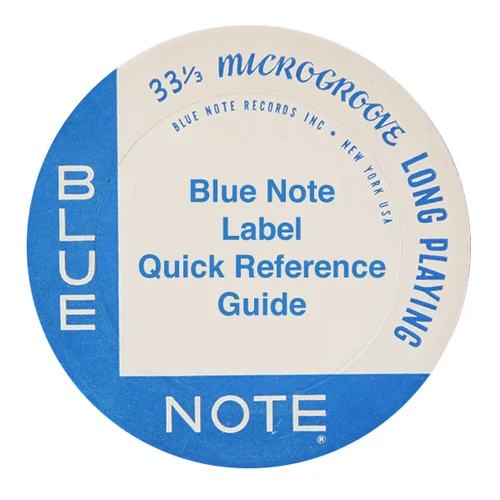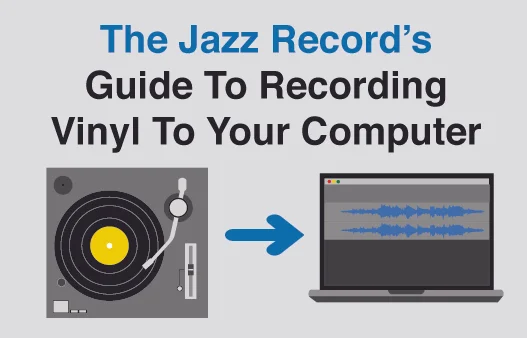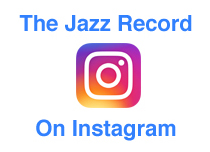Milt & Horace Are Some Cool Cats: Milt Jackson - "Milt Jackson Quartet"
/Milt Jackson • Milt Jackson Quartet • 1955 • Prestige Records PRLP 7003 (OJC-001)
Recorded May 20, 1955 at Rudy Van Gelder Studio, Hackensack, NJ
The Selection:
The Players:
Milt Jackson - Vibes
Horace Silver - Piano
Percy Heath - Bass
Connie Kay - Drums
The Tracks:
A1. Wonder Why
A2. My Funny Valentine
A3. Moonray
B1. The Nearness Of You
B2. Stonewall
B3. I Should Care
The Dig:
I don't know why I have a severe bias against the Original Jazz Classics vinyl reissues from the 1980s, but I certainly do. For those unfamiliar, the Original Jazz Classics (OJC) series was started by Fantasy Records in 1983 to reissue classic jazz sessions that had been unavailable for years and to do so with the original artwork and liner notes. It was a pretty big deal at the time, as some legendary recordings from labels like Prestige, Riverside and Contemporary were finally available again, first on vinyl and then later on the emerging new compact disc format. I picked up quite a few titles on CD back in the day, most notably Monk's Riverside and Miles' Prestige albums.
Milt Jackson, Date Unknown. Photo By Chuck Stewart.
The reasoning behind my aversion to picking up OJC vinyl is not based on any quality logic, in fact the sound is often very good (they were made from the original analog tapes) and even though the vinyl is quite thin, if it's in good shape the playback is very enjoyable. I guess it comes down to the fact that I remember these albums being released, which makes them somehow less "vintage" in my mind. Pair that with the fact that sellers often ask too much for these pressings (in my opinion $20 is too much) and I usually pass up some excellent titles if they are OJC pressings.
So why did I grab this copy of Milt Jackson Quartet a few weeks back? Simple answer is that it was marked at the extremely reasonable price of $4, a steal even for an OJC copy, and this is not an album I'm likely to come across in vintage form for anywhere near that price. This copy was in excellent condition, looking to have been barely played, so I pulled the trigger and I'm glad I did.
The Record:
Milt Jackson Quartet features Milt Jackson leading a group that includes two of his cohorts in the Modern Jazz Quartet (Heath and Kay), with the great Horace Silver sitting in place of John Lewis on the piano (at this time Silver was a member of Art Blakey's Jazz Messengers). Jackson was clearly skilled in this brass-less setting, and the group decided to lay down some cool jazz tracks that epitomize the sound of that movement in the mid-1950s. The tunes are mellow and fluid, with everyone falling into an easy groove that will move even the most uptight jazz fan.
Interestingly, the liner notes focus mostly on a new arrival to the jazz scene (at least for Prestige), the "12 inch series" as they call it, and how this new and exciting format will be utilized by the label. It is suggested that the 10 inch LPs don't always suffice when it comes to what the modern jazz musician has to say. But fear not traditionalists, "the short track will not be completely neglected," although "the main emphasis is on ample time for development of idea by the soloist and composer." It is a bit ironic then that this particular album - one of the first in this new and futuristic format - is so darn short in total playing time. Three tracks per side, all at a nice length of around five minutes, but not much longer than 30 minutes in total. I guess they just weren't quite ready to fill the grooves to capacity quite yet.
From a historical perspective, this album is of interest to those that want to hear Silver outside of his usual Blue Note setting, where he was quickly developing the hard bop style that would come to be the trademark of that label. His playing here is lyrical, inventive and fits in perfectly with Jackson's often understated playing on the vibes. Jackson here, as he often was, is just a master of - excuse the terrible pun - setting the vibe with his vibes. Heath and Kay were already gaining fame along with Jackson in the Modern Jazz Quartet and it's easy to see why. The symbiotic playing between the three is obvious from the start, with a nice easy style that feels neither forced or -----. Give "Moonray" a listen above to get a feel of what to expect from this excellent album, with it's cool easy tempo laid down by Kay's cymbal and Silver's rhythmic piano lines over which Jackson soon enters to give a long soulful solo on his ringing vibes. Eventually Jackson steps aside to let Silver do his thing, which he does exquisitely, reminding the listener why he would soon become a legendary player. Jackson comes back at the end for a quick final solo before the rest of the group drops out and he finishes the song on his own. This album may be on the mellow side, especially without the presence of a horn, but this isn't music that will lull you to sleep, the playing is too inventive and fresh for that.
The Vinyl:
OJC vinyl was manufactured in the 1980s, and as such it is pretty thin, but as I discussed at the end of my last post if you can find this lighter weight vinyl in good shape (clean, with minimal wear to the grooves) then they can sound as good as any other LPs out there. It turns out that Milt Jackson Quartet was actually the first album to be reissued as part of the OJC series (OJC-001), so mine could be an original copy. I'm not sure if these LPs were re-pressed throughout the '80s or not, and there doesn't seem to be a reliable way to know for sure, so there is no way to know if it dates from 1983.
A nice feature of the OJC series is the reproduction of the original label, in this case we get a crisp reproduction of the yellow and black "fireworks" label. Obviously it is easy to identify it as an OJC reissue as it uses the OJC catalog number (with the original catalog number beneath it). The markings in the vinyl trail-off are "OJC 001 A - TI - P - IT" and "OJC 001 B - TI - P IT" hand-etched on the respective sides. There is also a small "GH" in the trail-off on each side, which according to the Steve Hoffman Forums indicates that it was mastered in analog by George Horn.
One final note about OJC reissues. It seems that with the renewed interest in vinyl these have begun to appear again as new pressings, with the same large Original Jazz Classics sticker on the front, but from what I've read these are now being made from digital sources. So, if you are looking for some classic titles from Riverside, Prestige and Contemporary at cheaper prices try and stick to the vintage 1980s versions of the OJC albums. If they are in good shape (better to get these in stores where you can check them out under good lighting, rather than buying online sight unseen) you've got yourself a nice record at a very nice price.












